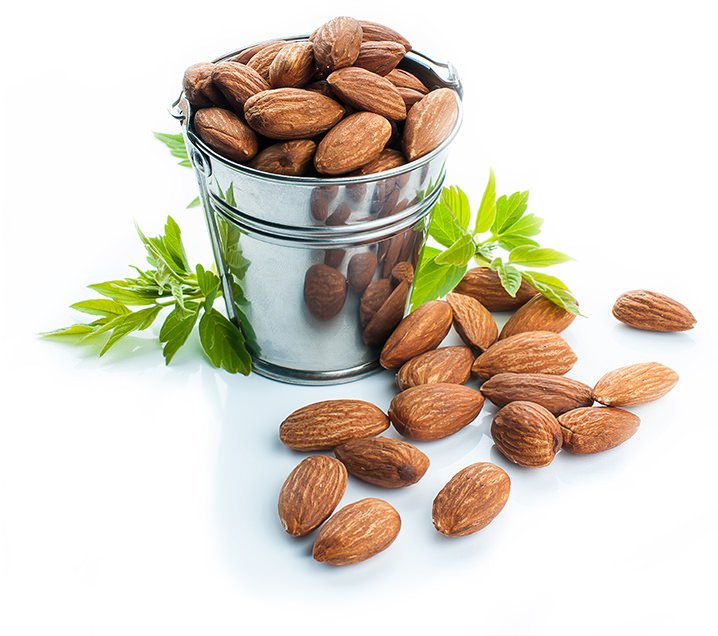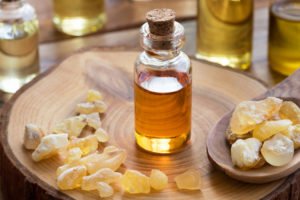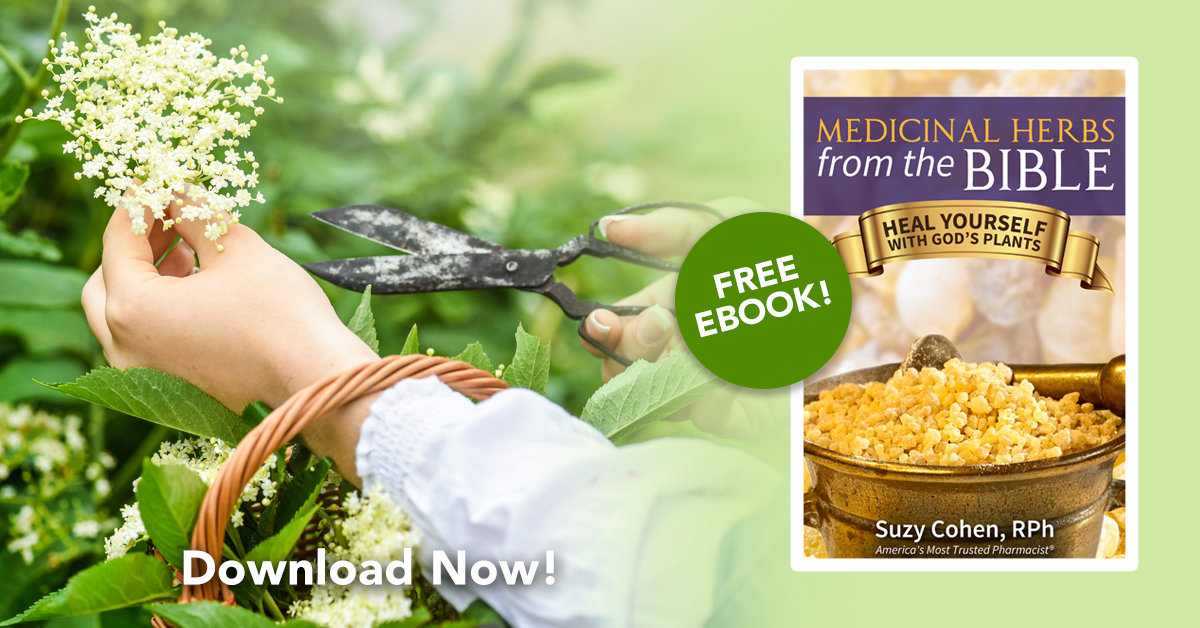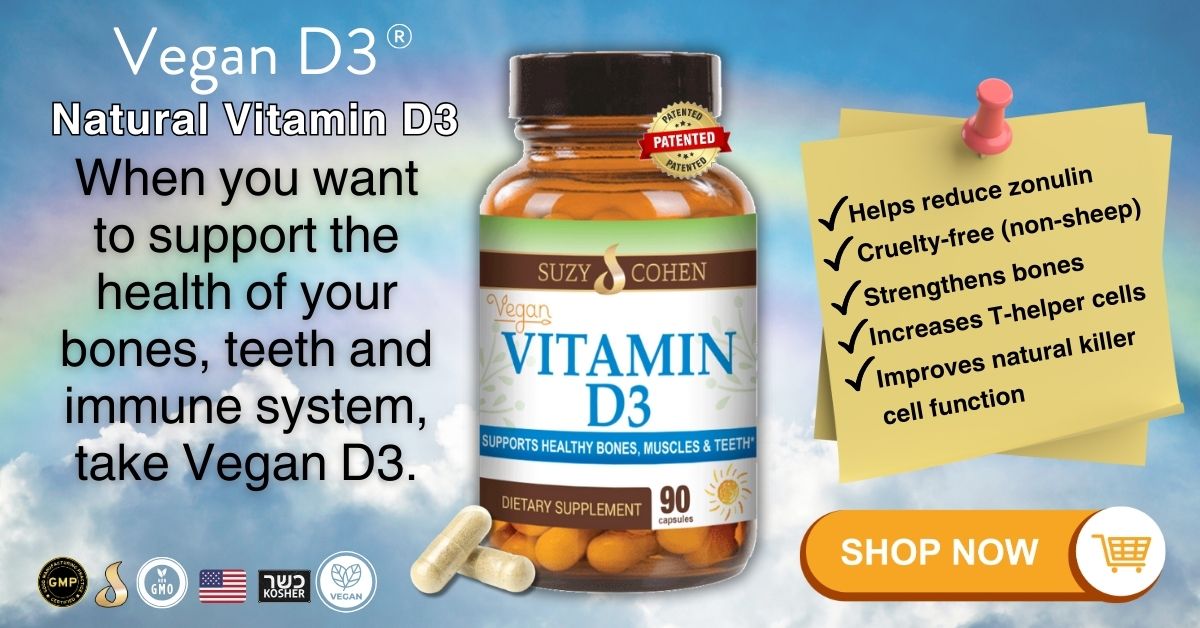What's On This Page?
ToggleBefore the advent of synthetic compounds, injections, and expensive medications, the human body was accustomed to natural herbs and spices. Our planet Earth has thousands of healing medicinal plants that grew during biblical times. I have written more about medicinal herbs and healing plants in my ebook, Medicinal Herbs from the Bible. Click on the image below to receive your copy.
Even though I am a pharmacist, I believe that we can use what grows on Earth to heal. Today I’m listing 8 incredible plants, all mentioned in the Bible, as well as their medicinal benefits:
8 Incredible Medicinal Plants from the Bible
Almonds–
 Known as Prunus dulcis, almonds contain salicin which goes on to form “salicylic acid.” This is the primary pain-relieving component of aspirin. We all know what aspirin is for, don’t we?
Known as Prunus dulcis, almonds contain salicin which goes on to form “salicylic acid.” This is the primary pain-relieving component of aspirin. We all know what aspirin is for, don’t we?
Eating a handful of almonds each day is like consuming natural aspirin. A study published in The Journal of Nutrition found that almonds can decrease post-prandial (after eating) blood sugar, as well as insulin and free radical damage.
Black Cumin–
Known as Nigella sativa, these jet black seeds can be used to flavor breads and other baked goods. You can buy black cumin seed oil as a dietary supplement which I often recommend for people dealing with neurological problems. If your child suffers from intractable seizures, please mention Nigella sativa supplementation to your pediatrician because the research on this is easy to find, and very promising.

Frankincense–
Known as Boswellia serrata, this medicinal plant is a gummy resin that contains compounds that might relieve joint pain by inhibiting the inflammatory cytokines that lead to discomfort. Research suggests that boswellia could improve ovarian and bladder health, and studies have already been conducted on people with those types of cancer, producing positive results.
Learn more here about frankincense and myrrh. Click Here
Garlic–
I love roasted garlic on my pizza! This aromatic can support healthy cholesterol ratios while decreasing platelet aggregation like a blood thinner. It can inhibit Angiotensin-Converting Enzyme (ACE), acting similarly to the drugs lisinopril and enalapril.
Myrrh–
Known as Commiphora myrrha, I keep this essential oil handy for cuts. It smells awful, no lie, but it’s worth having because it’s a strong antiseptic and anti-everything. This medicinal plant based oil could help reduce infection by a parasite, bacteria or fungus.
Olive–
Known botanically as Olea europaea, the olive branch conveys a universal symbol of peace. This medicinal plant contains oleic acid which is a fatty acid. This compound works in conjunction with vitamin D to support immune health.
Saffron–
Known as Crocus sativus, this medicinal plant acts like a natural antidepressant, anxiolytic and sedative. It contains many biologically active compounds including crocin and safranal which protect your levels of dopamine, serotonin and norepinephrine. Because saffron provides cofactors for the SOD enzyme, it may be helpful if you have an SOD polymorphism.
Sage–
This herb (medicinal plant) was studied on patients with mild to moderate Alzheimer’s disease and researchers concluded that sage “produced a significantly better outcome on cognitive function”. Interestingly, sage was shown in lab studies to help reduce flare-ups of herpes-related viruses such as cold sores and genital herpes.
Related articles:
Frankincense and Myrrh Still a Wise Gift of Health
These Herbs Work Like Medicine

Suzy Cohen, has been a licensed pharmacist for over 30 years and believes the best approach to chronic illness is a combination of natural medicine and conventional. She founded her own dietary supplement company specializing in custom-formulas, some of which have patents. With a special focus on functional medicine, thyroid health and drug nutrient depletion, Suzy is the author of several related books including Thyroid Healthy, Drug Muggers, Diabetes Without Drugs, and a nationally syndicated column.


